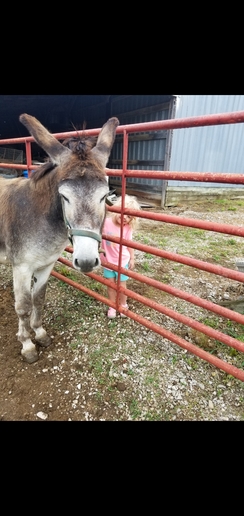You should upgrade or use an alternative browser.
- Thread starter swindave
- Start date
Moonlite37
Well-known Member
Kelly in tx
Member
It also contains contact info for people using oxen.
RFD tv may also have info, I dunno
Lots of mules are used for riding, pulling wagons on wagon trains and farming.
Again Rural Heritage and RFD tv for info.
Another magazine is Mules and More.
kelly
P.S. I'm prejudiced against mules altho I respect them. I'm a draft horse person.
Crookedwrench
Member
To earn my rite of passage as a green veterinarian my senior colleague sent me out on a farm call to administer deworming medication via a nasogastric tube to 21 unbroken 3-5 year old mules. They were herded into a barn and the mule skinners lassoed them from a loft. Eventually they had a rope halter applied and the rope end ran thru the slots of a corn crib. Wranglers announced, Ready Doc! Passing a 6 long 1/2 diameter nasogastric tube into the stomach was accomplished in twenty of the mules. Prearranged deal was $6/head including the medicine. 1975. I have not forgotten that day nor the 21st mule. Don
Tgrasher
Well-known Member
- Location
- South Southern illinois
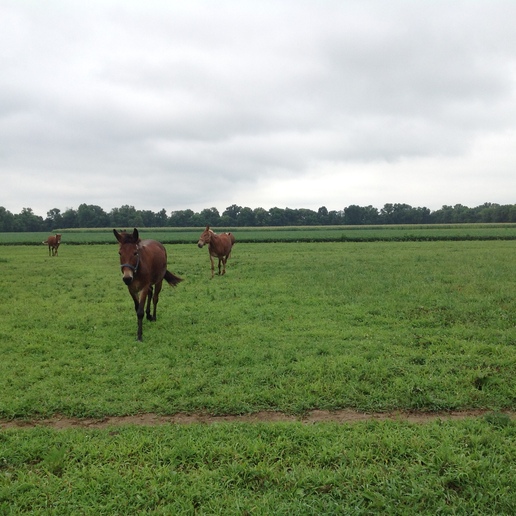
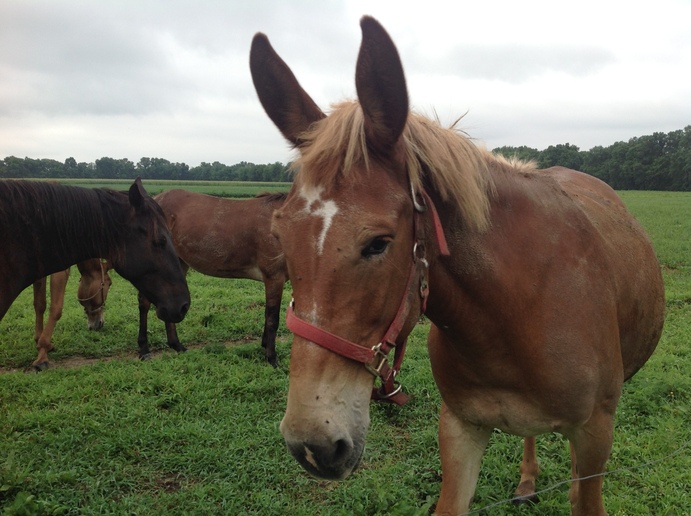
fastfarmall
Well-known Member
My distant cousin had a tough choice to make, but he lucked out. If he had gone to Panama, he might have died from the fever.
Martinique
He had a covered wagon he'd pull with a mule team in parades. This was late 90s. I rode along once. I remember when it was time to get moving he'd just call out Fred...Barney.. and off we'd go.
Hoenes
Member
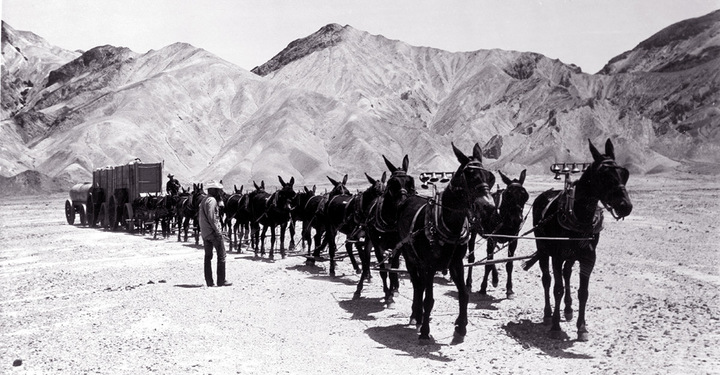
sandcastle1
Member
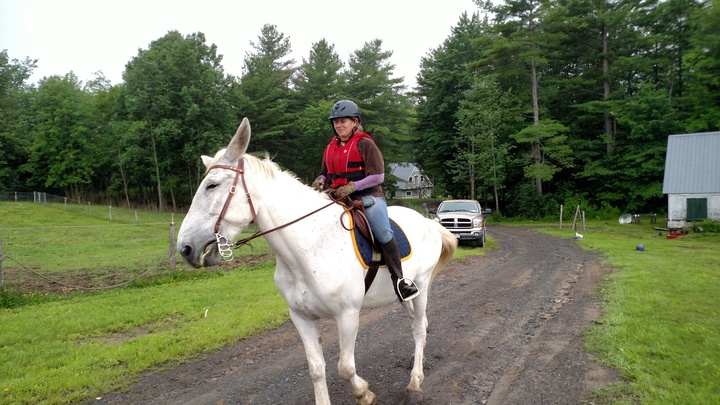
coonie minnie
Well-known Member
Donald Lehman
Well-known Member
FarrviewSouth
Member
I want to add the the Northeast has many involved with oxen. The 4H Working Steer program is
very active and I would point you to the books by Drew Conroy and/or the 4H manual for educational information
Also you might want to do a search for the Backyard Green Video series They are working with our association to highlight
our Breed including oxen
farmallsandcoops
Member
They will also pick their human. Ours chose me. I do ride him and yes they are very sure footed. He will step in the same spot in the lot going from point A to point B within inches each time. If a mule trusts you, they will go anywhere you ask. They used mules to take cannons to battle in the Civil War. BUt mules would not take them to the front lines. Refused. They will not put themselves in a place that they do not believe is safe which is why they get a reputation for being stubborn. Have to approach them differently than a horse... sometimes it takes a little more to get their attention. But having one, I always want to have one now. One of the coolest animals I have ever been around. Ours just loves attention. He will stop eating when you groom him. Never seen a horse do that!
There are lots of people still using and working oxen, mules and draft horses. There are many, many, many times their number who have never worked any animal that will give you all sorts of information that is based on what they heard 40 years ago or while down at the local tavern. You Tube has people actually working animals and they can lead you to local's doing the same. Start there. Magazines like Rural Heritage, Small Farmers Journal and a couple others are in the business of selling the idea of animal power. Lotta new age crap in both, but there's some decent info in them.
showcrop
Well-known Member
Sometime around the year 2000 our daughter was in school at Morgantown WV. We went to visit her around Easter. She took us to a "mule event" that was put on by a local organization. They had some displays and some competitions for both visitors and for the teamsters. The most memorable was a slalom event where they pulled a large log through poles laid out across a fairly steep side hillside. they had to of course avoid knocking poles over and went for fastest time. They had to be careful not to allow the log to get rolling when they turned around the upper side of the flag poles, so they tried to come around quick and then take it real easy going down between poles. Then a young Amish fellow from Ohio came up to the start line. He started his team off at a canter and never gave the log enough time to start rolling as he jumped over the log from side to side and turned his team up and down and left and right. His time was about a third of that of the second fastest.
buickanddeere
Well-known Member
(quoted from post at 19:52:24 03/24/21) does anyone have any experience with mules or oxen?
farm use or just having them around?
any still around in use ? how hard are they to train?
or any old stories from long ago about mules and oxen?
thanks
Heavy draft horses around here . Mules were rare even during the peak of of the era . The early settlers had a few oxen in the area when the trees were being cleared from the 1830s-1880s
showcrop
Well-known Member
(quoted from post at 05:18:12 03/25/21) AS a director with the American Milking Devon Association and a breeder/raiser of Devon Oxen,
I want to add the the Northeast has many involved with oxen. The 4H Working Steer program is
very active and I would point you to the books by Drew Conroy and/or the 4H manual for educational information
Also you might want to do a search for the Backyard Green Video series They are working with our association to highlight
our Breed including oxen
Yes, Drew Conroy is very knowledgeable and very personable too!
Similar threads
- Replies
- 26
- Views
- 2K
We sell tractor parts! We have the parts you need to repair your tractor - the right parts. Our low prices and years of research make us your best choice when you need parts. Shop Online Today.
Copyright © 1997-2024 Yesterday's Tractor Co.
All Rights Reserved. Reproduction of any part of this website, including design and content, without written permission is strictly prohibited. Trade Marks and Trade Names contained and used in this Website are those of others, and are used in this Website in a descriptive sense to refer to the products of others. Use of this Web site constitutes acceptance of our User Agreement and Privacy Policy TRADEMARK DISCLAIMER: Tradenames and Trademarks referred to within Yesterday's Tractor Co. products and within the Yesterday's Tractor Co. websites are the property of their respective trademark holders. None of these trademark holders are affiliated with Yesterday's Tractor Co., our products, or our website nor are we sponsored by them. John Deere and its logos are the registered trademarks of the John Deere Corporation. Agco, Agco Allis, White, Massey Ferguson and their logos are the registered trademarks of AGCO Corporation. Case, Case-IH, Farmall, International Harvester, New Holland and their logos are registered trademarks of CNH Global N.V.
Yesterday's Tractors - Antique Tractor Headquarters
Website Accessibility Policy


